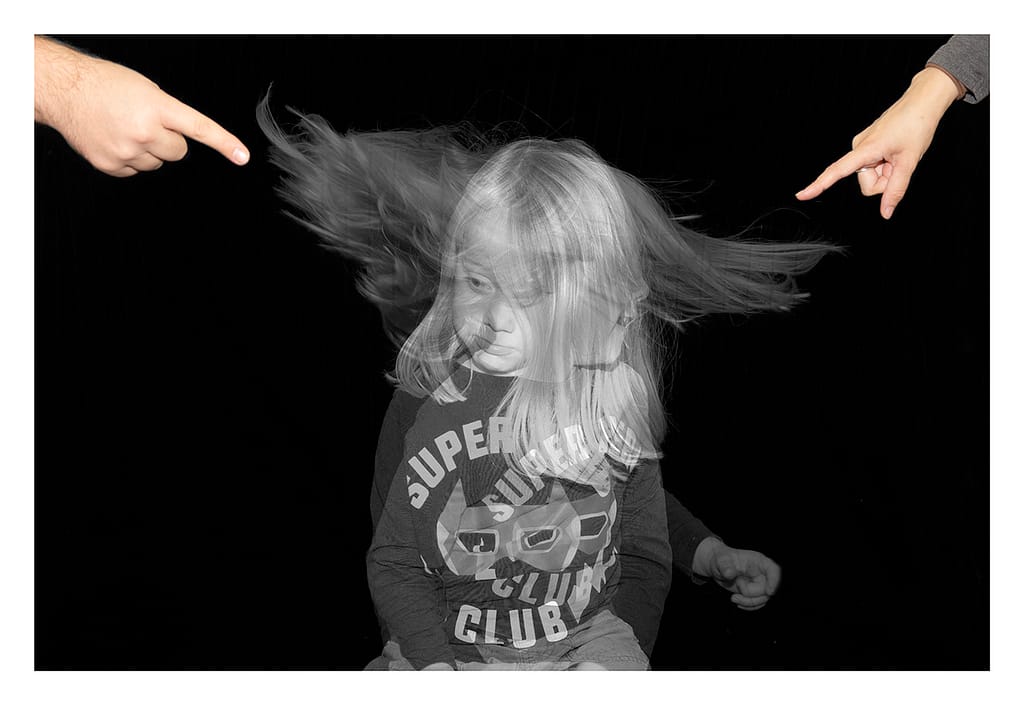How our parenting can affect our children?
Have you thought about how you parent your children? Are you just parenting how you were parented? Have you thought about the implications of that?
Parenting is not easy, and you face so many challenges. This post is not here to shame anyone. It is a post on the things I had to learn through my parenting journey, and it is up to you to really think about yours.
When I became a parent it was weird. I have spent my life doubting my choices, but with parenting, I did not. It felt natural to follow my mothering instincts. I mean they’ve kept humanity alive for thousands of years, so they must be right. You can rest assured that your instincts are 99% correct, even if they go against the norm. I never realised the way we parent was controversial until I found myself simply nodding and smiling at some “well-meaning” advice.
You will always get naysayers unless you surround yourself with like-minded people. It can be hard at times to navigate this. Remember that most people who criticise your parenting, feel that you are criticising them. They think that by you doing things differently and not taking their advice, you are criticising their choices. The truth is, if they feel this way, it is because they have niggling feelings themselves about how they chose to parent.
When it’s family it’s hard
It can be hard when it is family that makes comments on your parenting. Sometimes it’s not as easy to get away from them, as it is “friends”. It would be good for you to have a few responses in the bag, that shut down the conversation. Healthy communication is key.
“Thank you for your suggestion. However, I am happy with the choices I am making regarding parenting my child/ren.”
“I do not wish to discuss my parenting choices and will not be discussing them.”
“I do not need to defend my choices and will not be defending them to you.”
Parenting Styles

Research suggests that authoritative parenting and/or gentle parenting are the most effective parenting styles. Though they are not entirely the same, they share some basic ideas. The truth is parenting is hard, and you must do what feels right to you. That could even be a mixture of different techniques. I automatically leaned towards the aforementioned parenting styles. It felt right to treat my children as autonomous human beings. I knew I must place fair boundaries as they are still learning, but they deserve independence and a voice within those boundaries.
When you are parenting you need to think long-term. How are your parenting choices going to affect your child’s mental health in the future? If you were parented in a way that made you feel unheard as a child, take a deep look at how you are now. It is very important to understand the effect that your parent’s style of parenting had on you. If you say, “Well I was hit as a child and I turned out fine.” I can assure you, you did not turn out fine. If you think it is ok to lose control of your emotions while teaching your child to control theirs. You are wrong. It quite clearly didn’t work for you, did it? Think.
Authoritative Parenting
This style of parenting is one that combines prioritising a child’s mental well-being and responsiveness, with also setting fair rules and boundaries. As a parent, you are willing to listen to your child and provide support without shame. Authoritative parenting encourages open communication, positive reinforcement, and empathy. It requires you as the parent to be assertive and loving. By listening to your child’s feelings and helping them understand them, you are validating their experience. In doing so you create a secure environment for your child and a healthy communication between you both.
Authoritative parenting helps your child/ren develop self-control and self-reliance. They will grow to have a strong sense of self-worth, confidence in their abilities and the ability to have healthy relationships. Your child will be more likely to take responsibility for their actions and understand the consequences, meaning that they are more likely to make better decisions in the future.
Children of authoritative parents are more well-rounded and adaptable.
Gentle Parenting
Gentle parenting is focused on raising children with empathy, respect and understanding. It is gentle parents that believe a child is not inherently bad and that their behaviour is not there to test you. It is a representation of their developmental ability at that stage in their life. Gentle parents then help their children through positive interactions and communication. It is important to build a strong parent-child bond, which is constructed through consistent love, support, and responsiveness to your child’s needs. This then makes your child feel safe and secure, both physically and mentally.
A large part of gentle parenting is natural or logical consequences. I can tell you that this is not always easy, especially if you are parenting while unlearning how you were brought up. All I can say is, be kind to yourself, everyone makes mistakes, it is how we move forward from them that matters. If I have lost it with my child, I will go and mend those mistakes. I will discuss with them why it happened, never blaming them, and apologise. Children learn through modelling, so it is important to model the behaviour you wish to see. Why should we expect things from children that we don’t from adults? If you as the parent cannot control your emotions in a positive way, how do you expect your child/ren to?
consequences
Natural consequences are those that happen simply because of the action.
- If a child refuses to wear a coat on a cold day, the natural consequence is that they will be cold when they go outside. Instead of forcing the child to wear a coat or punishing them for not wearing one, the parent can let the natural consequence of feeling cold teach the child the importance of dressing appropriately for the weather. The parent would then guide and support the child, comforting them and helping them learn from the experience, and deciding on the next steps. (I would obviously think about how cold it is and work from there, using some common sense.)
- If a child is rude to their friends, their friends will not want to play with them.
Logical consequences are those that make sense within the situation.
- If a child throws a toy and it is unsafe, then an adult would remove the toy for a short time. Explaining why they have done this and how it is unsafe.
- If a child spills something, then they help clean it up. As the parent, you would lead and help them with this. “Accidents happen, come on let’s clean this up.”
Allowing your child to experience natural and logical consequences helps them develop self-control and responsibility, without damaging their self-esteem and sense of worth. Remember, that these need to be age appropriate and a young child will not fully understand the consequences. Also, think about how these consequences would work in the real world. If this thing happened to you as an adult how would you solve it and can your child do the same? If not, then it is up to you to be that person and explain.
You can find more information on gentle parenting here.
Communication is key
Open communication is a key part of gentle parenting, and expressing one’s feelings is encouraged and supported. So, it is also important to talk through the boundaries and consequences you have set so that your child/ren feels that they are an active part of the family unit. Gentle parenting can help your child/ren develop resilience and the ability to cope with stress and adversity.
Gentle parenting is not easy, by any stretch of the imagination. It annoys me when it is shoved in with permissive parenting. When you gentle parent you are not only thinking about your child’s emotions but also your own. You are parenting yourself as well as your child. If you feel that you are triggered by your child’s behaviour, you need to stop and take a breath and figure out why. We are all always learning and growing, and it is important to acknowledge that we don’t know everything.
Parenting yourself
If you are wanting to fix generational trauma, you first have to parent yourself. If you want your child to react one way, you need to be modelling that. If you are unable to do this, then step back. If your child is “testing” you and you can feel you are going to lose control, then make sure your child is safe (In a cot or playpen for example) and explain that you are going to leave the space for a few minutes to regulate. When you are calm come back and finish dealing with the situation.
Co-regulation
We live in a society that seems determined to make our children “independent” before their time. I mean children aren’t independent by definition, so why push it on them, instead of allowing them to naturally move towards it?
Co-regulation is an important step in helping your child become independent and able to successfully and healthily self-regulate. As a parent you want your child to be able to manage their emotions, thoughts and behaviours in a healthy and appropriate way. You want them to be able to cope with challenges, solve problems and achieve their goals.
Do you let them figure things out on their own? Do you tell them what to do and how to feel? Do you ignore their feelings and focus on their actions? Nope to all.
What is co-regulation?
Co-regulation is when you stay by your child’s side through situations to help them calm and learn to self-regulate. It is also when we model our own self-regulation so that they too can learn to self-regulate their emotions and behaviours in a healthy way.
Why is co-regulation important?
Co-regulation is important because it is the foundation for self-regulation.
Your child will learn how to self-regulate by first co-regulating with you and the other people around them. When you respond sensitively and appropriately to your children’s emotional cues, you help them feel safe, secure and understood. You also help them learn how to label, express, and cope with their emotions in constructive ways.
When you provide structure, guidance, and feedback to your children’s behavioural cues, you help them learn how to follow rules, set goals, plan actions, monitor progress, and adjust strategies. This also helps them learn how to control impulses, delay gratification, and resist distractions.
When you model positive emotions and behaviours yourself, you help children learn how to regulate by imitation. You also help them learn how to cope with stress, deal with challenges, and celebrate successes.
Self-regulation is essential for healthy development. It can help us function in a positive way in different situations. These can be physical health, mental health, academic performance, social skills, and life satisfaction.
However, self-regulation is not something that children are born with. It is something that they learn through their interactions with others.
By co-regulating with children in these ways, you can help them develop the neural connections, cognitive skills, and emotional competencies that enable them to self-regulate later in life
Conclusion
Parenting is hard. As easy as it is to try and stop “bad” behaviour now, and gain compliance. This is not helpful for your child’s mental health in the future. You can’t think short term, you have to think long term. Children are their own people and deserve the foundations to help them succeed in life. Remember this won’t be easy. It will be testing and hard. So, surround yourself with those that support you and the choices you are making.

Leave a Reply